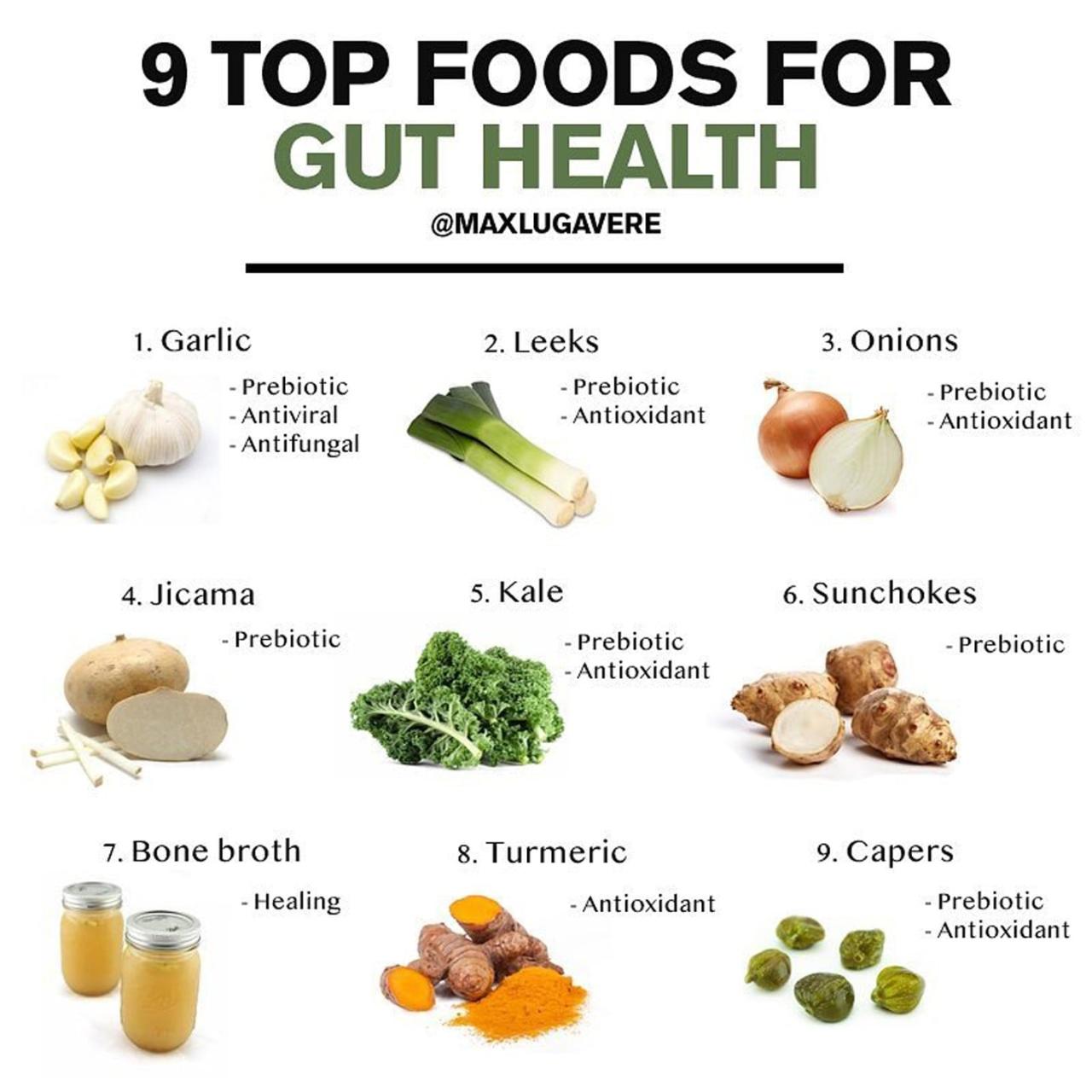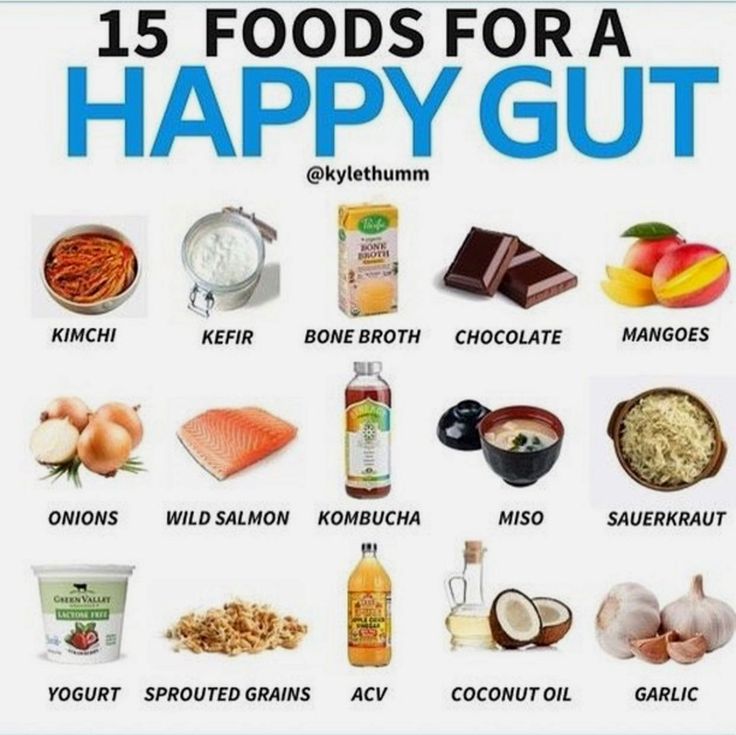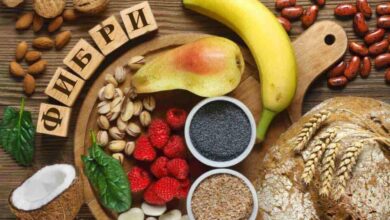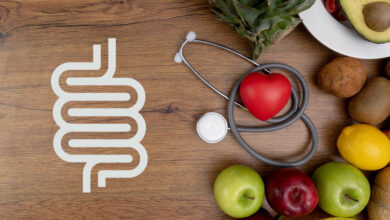
Best Foods for Gut Health: Nourishing Your Inner Ecosystem
Best foods for gut health are a hot topic, and for good reason! Our gut microbiome, the trillions of bacteria living in our digestive system, plays a crucial role in everything from digestion and immunity to mental health. Imagine your gut as a bustling city teeming with diverse inhabitants, each playing a vital role in keeping the whole system running smoothly.
Just like any city, the gut thrives when it has access to a balanced and nutritious supply line.
This means choosing foods that nourish the beneficial bacteria in our gut, while limiting those that disrupt the delicate balance. Think of it as cultivating a thriving ecosystem within your body. By making smart food choices, you can empower your gut to function optimally, leading to improved overall health and well-being.
Foods Rich in Prebiotics
Prebiotics are non-digestible fibers that act as food for the beneficial bacteria in your gut, promoting their growth and activity. These friendly bacteria, known as probiotics, play a crucial role in maintaining gut health and overall well-being. By consuming prebiotic-rich foods, you can cultivate a flourishing gut microbiome, supporting digestive health, immune function, and even mental well-being.
Keeping your gut happy is essential for overall well-being, and incorporating a variety of nutrient-rich foods is key. One delicious and gut-friendly option is vegan super greens tomatillo posole , packed with fiber from the tomatillos and a boost of antioxidants from the super greens.
This vibrant dish is a fantastic way to fuel your gut with healthy goodness, contributing to a balanced and thriving microbiome.
Types of Prebiotic Foods
Prebiotics are found in a variety of plant-based foods. They are typically complex carbohydrates that our bodies cannot digest, but our gut bacteria can. Some of the most common types of prebiotics include:
- Inulin:A type of fructan found in chicory root, onions, garlic, and asparagus. It’s known to increase the number of beneficial bacteria in the gut.
- Fructans:These are found in foods like wheat, barley, and rye. They can promote the growth of various beneficial bacteria, including Bifidobacteria and Lactobacilli.
- Resistant starch:This type of starch is not broken down by our digestive system and can be found in cooked and cooled potatoes, green bananas, and legumes.
- Galacto-oligosaccharides (GOS):These are found in breast milk and can be added to some dairy products and infant formulas.
Benefits of Prebiotic Foods
The benefits of consuming prebiotic foods are numerous and contribute to overall health and well-being:
- Improved Digestive Health:Prebiotics help to regulate bowel movements, reduce constipation, and promote a healthy gut microbiome, which is essential for proper digestion.
- Enhanced Immune Function:A healthy gut microbiome is crucial for a robust immune system. Prebiotics can help strengthen the immune system by promoting the growth of beneficial bacteria that support immune function.
- Reduced Inflammation:Chronic inflammation is linked to various health issues. Prebiotics can help reduce inflammation by promoting the growth of anti-inflammatory bacteria in the gut.
- Improved Mental Health:Emerging research suggests a connection between gut health and mental well-being. Prebiotics may play a role in supporting mental health by influencing the production of neurotransmitters in the brain.
Prebiotic Foods Table
Here is a table outlining some popular prebiotic-rich foods, their prebiotic content, health benefits, and serving suggestions:
| Food Type | Prebiotic Content | Health Benefits | Serving Suggestions |
|---|---|---|---|
| Chicory Root | Inulin | Improved digestion, enhanced immune function, reduced inflammation | Add chicory root powder to smoothies, coffee, or yogurt |
| Onions | Fructans | Improved digestion, reduced risk of heart disease, enhanced immune function | Include onions in soups, stews, salads, or stir-fries |
| Garlic | Fructans | Antioxidant properties, reduced risk of heart disease, improved immune function | Use garlic in cooking, add it to sauces, or enjoy it raw |
| Asparagus | Inulin | Improved digestion, reduced risk of certain cancers, enhanced immune function | Steam, roast, or grill asparagus |
| Wheat Bran | Resistant starch | Improved digestion, reduced risk of type 2 diabetes, enhanced immune function | Add wheat bran to smoothies, yogurt, or baked goods |
| Green Bananas | Resistant starch | Improved digestion, reduced risk of heart disease, enhanced immune function | Enjoy green bananas raw or cooked |
| Legumes (beans, lentils, chickpeas) | Resistant starch | Improved digestion, reduced risk of heart disease, enhanced immune function | Include legumes in soups, stews, salads, or as a side dish |
Tips for Incorporating Prebiotic Foods
- Gradually Increase Intake:Start by adding a small amount of prebiotic-rich foods to your diet and gradually increase your intake over time. This will help your gut bacteria adjust and prevent digestive discomfort.
- Combine with Probiotics:Combining prebiotics with probiotics, which are live bacteria found in fermented foods like yogurt and kefir, can further enhance the benefits for gut health.
- Variety is Key:Incorporate a variety of prebiotic-rich foods into your diet to ensure you’re getting a diverse range of prebiotics, supporting a diverse and healthy gut microbiome.
- Listen to Your Body:Pay attention to how your body responds to different prebiotic foods. If you experience any digestive discomfort, reduce your intake or try a different type of prebiotic food.
Foods Rich in Probiotics

Probiotics are live bacteria that are beneficial to your gut health. They are often referred to as “good” bacteria because they help to balance the bacteria in your gut, which can improve digestion, boost your immune system, and even help to reduce your risk of certain diseases.
You can get probiotics from a variety of foods, as well as supplements.
When it comes to gut health, incorporating a variety of fiber-rich foods is key. And what better way to do that than with a delicious and satisfying bowl of mushrooms, brussels sprouts, tofu, and grains ? This combination packs a punch of prebiotics, which feed the good bacteria in your gut, promoting a healthy and balanced microbiome.
Naturally Occurring Probiotics
Foods naturally containing probiotics are a delicious and convenient way to introduce these beneficial bacteria into your diet. These foods undergo a process called fermentation, where microorganisms break down sugars and produce lactic acid, resulting in a characteristic sour taste and unique flavor profiles.
- Yogurt: A classic source of probiotics, yogurt is made by fermenting milk with bacteria like Lactobacillus and Bifidobacterium. Look for yogurt labeled as “live and active cultures” to ensure it contains probiotics. Yogurt can be enjoyed plain or flavored, and it’s a versatile ingredient in smoothies, dips, and sauces.
- Kefir: Similar to yogurt, kefir is a fermented milk drink that contains a wider variety of probiotic strains. It has a tangy, slightly sweet flavor and can be enjoyed on its own or used in smoothies and other recipes. Kefir is known for its high levels of probiotics, including Lactobacillus, Bifidobacterium, and Streptococcus thermophilus.
Fiber-rich foods like butternut squash are a must-have for a healthy gut. This delicious winter squash is packed with prebiotics, which nourish the good bacteria in your digestive system. If you’re looking for a warm and comforting meal that’s also gut-friendly, try out this butternut squash black bean chili recipe.
It’s loaded with fiber, protein, and antioxidants, making it a perfect choice for a healthy and happy gut.
- Sauerkraut: This fermented cabbage dish is a staple in many cultures and is a good source of probiotics, particularly Lactobacillus strains. Sauerkraut is often used as a condiment or topping for sandwiches, hot dogs, and other dishes.
- Kimchi: A Korean fermented cabbage dish, kimchi is packed with probiotics, including Lactobacillus, Leuconostoc, and Pediococcus. Kimchi is a flavorful and spicy condiment that can be enjoyed with rice, noodles, or as a side dish.
- Kombucha: This fermented tea drink is made by adding a SCOBY (symbiotic culture of bacteria and yeast) to sweetened tea. Kombucha is known for its refreshing flavor and its probiotic content, which includes bacteria like Lactobacillus and Acetobacter.
- Tempeh: Made from fermented soybeans, tempeh is a good source of protein and probiotics. It has a nutty flavor and can be used in stir-fries, soups, and other dishes.
- Miso: A traditional Japanese fermented soybean paste, miso is a rich source of probiotics and umami flavor. It is used in soups, sauces, and marinades.
Probiotic Supplements
Probiotic supplements offer a concentrated source of beneficial bacteria, often containing specific strains of Lactobacillus and Bifidobacterium. They are available in various forms, including capsules, tablets, and powders.
- Potential Benefits:Probiotic supplements have been linked to various potential health benefits, including improved digestion, reduced symptoms of irritable bowel syndrome (IBS), enhanced immune function, and potential benefits for mental health.
- Potential Drawbacks:While generally safe, some individuals may experience side effects from probiotic supplements, such as bloating, gas, or diarrhea. It’s important to choose high-quality supplements from reputable brands and consult with your healthcare provider before taking them, especially if you have any underlying health conditions.
Comparing Fermented Foods
| Food | Probiotic Strains | Taste | Texture | Uses ||—|—|—|—|—|| Yogurt | Lactobacillus, Bifidobacterium | Tangy, creamy | Smooth, creamy | Plain, flavored, smoothies, dips, sauces || Kefir | Lactobacillus, Bifidobacterium, Streptococcus thermophilus | Tangy, slightly sweet | Thin, watery | Plain, smoothies, other beverages || Sauerkraut | Lactobacillus | Sour, tangy | Crisp, crunchy | Condiment, topping || Kimchi | Lactobacillus, Leuconostoc, Pediococcus | Spicy, tangy | Crisp, crunchy | Side dish, condiment || Kombucha | Lactobacillus, Acetobacter | Sweet, slightly tart | Carbonated, bubbly | Beverage |
Fiber-Rich Foods for Gut Health: Best Foods For Gut Health

Dietary fiber plays a crucial role in maintaining a healthy gut. It is a type of carbohydrate that the human body cannot digest. However, fiber is essential for gut health as it acts as a prebiotic, feeding the beneficial bacteria in the gut.
The Importance of Dietary Fiber for Gut Health
Dietary fiber is essential for maintaining a healthy digestive system. It promotes regularity by adding bulk to stool, which helps to prevent constipation. Fiber also helps to slow down the digestion process, allowing for better absorption of nutrients and promoting feelings of fullness.
Additionally, fiber can help to regulate blood sugar levels and lower cholesterol.
Foods Rich in Fiber
Here are some examples of foods rich in fiber:
- Fruits:Apples, pears, berries, bananas, oranges, and avocados
- Vegetables:Broccoli, spinach, Brussels sprouts, carrots, sweet potatoes, and peas
- Whole Grains:Brown rice, quinoa, oats, whole-wheat bread, and barley
- Legumes:Lentils, beans, chickpeas, and peas
- Nuts and Seeds:Almonds, walnuts, chia seeds, flaxseeds, and pumpkin seeds
A Sample Meal Plan Incorporating Diverse Fiber Sources
Here’s a sample meal plan incorporating diverse fiber sources for a day:
Breakfast
- Oatmeal with berries and nuts
Lunch
- Lentil soup with whole-wheat bread
Dinner
- Grilled salmon with roasted vegetables (broccoli, carrots, and sweet potatoes)
Snacks
- Apple slices with almond butter
- A handful of mixed nuts and seeds
It is important to gradually increase fiber intake to avoid digestive discomfort. Aim for 25-30 grams of fiber per day.
Foods to Limit or Avoid for Gut Health
While nourishing your gut with beneficial foods is essential, it’s equally important to be mindful of certain foods that can negatively impact your gut health. Understanding these food groups and making informed choices can contribute significantly to a healthy and balanced digestive system.
Foods That Can Contribute to Inflammation
Inflammation is a natural immune response, but chronic inflammation can be detrimental to gut health. Certain foods can trigger or exacerbate inflammation, potentially disrupting the delicate balance of your gut microbiome.
- Processed Foods:Processed foods often contain high levels of unhealthy fats, sugar, and salt, which can contribute to inflammation. Examples include packaged snacks, fast food, and commercially prepared meals.
- Sugary Drinks:Sugary drinks, such as soda, fruit juices, and sweetened beverages, are linked to increased inflammation and can negatively impact gut health.
- Excessive Alcohol Consumption:Excessive alcohol intake can damage the gut lining and contribute to inflammation.
Food Sensitivities and Gut Health
Food sensitivities, often referred to as intolerances, can cause inflammation and discomfort in the gut. While not as severe as allergies, food sensitivities can trigger symptoms like bloating, gas, diarrhea, or constipation.
- Common Food Sensitivities:Some common food sensitivities include gluten, dairy, eggs, soy, and nuts. It’s essential to be aware of your own sensitivities and adjust your diet accordingly.
- Identifying Sensitivities:Consulting a healthcare professional or registered dietitian can help identify potential food sensitivities through a process of elimination or testing.
Tips for Minimizing Processed Foods
- Read Food Labels:Pay attention to ingredient lists and avoid products with excessive processed ingredients, added sugars, and unhealthy fats.
- Cook More at Home:Preparing meals at home allows you to control the ingredients and ensure they are fresh and unprocessed.
- Focus on Whole Foods:Prioritize whole, unprocessed foods such as fruits, vegetables, lean proteins, and whole grains. These foods provide essential nutrients and support gut health.
Hydration and Gut Health
You might be surprised to learn that staying hydrated is crucial for maintaining a healthy gut. Just like any other organ in your body, your digestive system needs adequate water to function optimally. Water plays a vital role in various digestive processes, from breaking down food to absorbing nutrients and eliminating waste.
The Importance of Hydration for Gut Function
Adequate hydration is essential for proper digestion and gut health. Water facilitates the breakdown of food, helps move waste through the digestive tract, and contributes to the production of digestive juices.
Daily Water Intake Recommendations
The amount of water you need daily varies depending on factors such as your activity level, climate, and overall health. However, a general guideline is to aim for 8 glasses of water per day.
The Role of Electrolytes in Gut Health
Electrolytes are minerals that carry an electrical charge when dissolved in fluids. They play a critical role in maintaining fluid balance, muscle function, and nerve impulses. Electrolytes, like sodium, potassium, and magnesium, are lost through sweat and can be depleted during intense exercise or illness.
Replenishing these electrolytes is essential for optimal gut health.
Creative Ways to Increase Water Consumption, Best foods for gut health
There are many creative ways to ensure you’re getting enough fluids throughout the day.
- Carry a reusable water bottle with you and refill it regularly.
- Add slices of lemon, cucumber, or berries to your water for a refreshing flavor boost.
- Drink herbal teas or infused water.
- Opt for water over sugary drinks like soda or juice.
Lifestyle Factors for Gut Health
Beyond the foods we eat, several lifestyle factors significantly impact our gut health. These include sleep, stress management, and physical activity, all of which play a crucial role in maintaining a healthy gut microbiome.
Sleep and Gut Health
Adequate sleep is essential for overall health, including gut health. During sleep, our bodies repair and regenerate, and this process extends to the gut microbiome. When we don’t get enough sleep, our gut bacteria can become imbalanced, leading to inflammation and other gut problems.
- Reduced Sleep and Gut Microbiome Imbalance:Studies have shown that chronic sleep deprivation can alter the composition and diversity of the gut microbiome, leading to an overgrowth of harmful bacteria and a decrease in beneficial bacteria.
- Sleep Deprivation and Increased Gut Permeability:Insufficient sleep can also increase gut permeability, also known as “leaky gut,” allowing harmful substances to enter the bloodstream and trigger inflammation.
Stress Management and Gut Health
Stress can have a significant impact on our gut health. When we’re stressed, our bodies release hormones like cortisol, which can disrupt the balance of our gut microbiome.
- Stress and Gut Microbiome Dysbiosis:Prolonged stress can lead to an imbalance in gut bacteria, known as dysbiosis, contributing to digestive problems like irritable bowel syndrome (IBS) and inflammatory bowel disease (IBD).
- Stress and Gut Motility:Stress can also affect gut motility, slowing down digestion and leading to constipation or diarrhea.
Physical Activity and Gut Health
Regular physical activity has numerous benefits for our overall health, including our gut health. Exercise can improve gut motility, promote a healthy gut microbiome, and reduce inflammation.
- Exercise and Gut Microbiome Diversity:Studies have shown that regular exercise can increase the diversity of the gut microbiome, promoting a healthier balance of bacteria.
- Exercise and Gut Motility:Exercise stimulates gut motility, aiding in the efficient passage of food through the digestive tract and preventing constipation.
- Exercise and Gut Inflammation:Physical activity can reduce inflammation in the gut, which is often associated with gut disorders like IBS and IBD.
Closure
By embracing a diet rich in prebiotics, probiotics, and fiber, along with a healthy lifestyle that prioritizes hydration, sleep, and stress management, you can cultivate a thriving gut microbiome. This inner ecosystem is your ally in achieving optimal health, and by nurturing it, you’re taking a proactive step towards a happier, healthier you.






